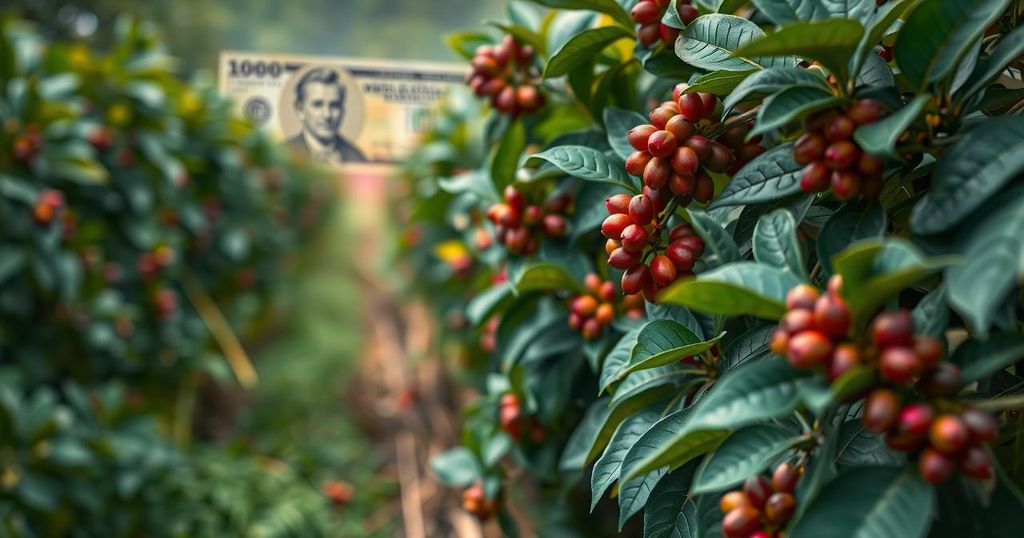Weakness of the Brazilian Real Impacts Coffee Prices
Coffee prices have decreased, influenced by Brazilian Real forecasts predicting a 4% rise in global coffee production for 2024/25, alongside a reduction in Brazil’s output due to drought. The USDA projects a fall in ending stocks, marking a 25-year low. Future production estimates highlight significant deficits for arabica coffee, signaling potential market volatility.
Recent developments in the coffee market have seen a decline in prices, with May arabica coffee (KCK25) decreasing by 0.70 to settle at -0.19%, while May ICE robusta coffee (RMK25) dropped by 23 points, registering a decrease of 0.43%. This downturn was attributed to a forecast by the Brazilian real, indicating an expected 4% rise in global coffee production in the 2024/25 season, totaling 174.855 million bags. Notably, arabica production is expected to increase by 1.5% to reach 97.845 million bags, while robusta production is projected to rise by 7.5% to 77.01 million bags.
Additionally, the USDA’s Foreign Agricultural Service anticipates a significant fall in coffee stock levels, estimating a reduction of 6.6% to 20.867 million bags by the end of the 2024/25 cycle, marking a 25-year low. Furthermore, it revised Brazil’s coffee production for 2024/25 down to 66.4 million metric tons, from a prior estimate of 69.9 million metric tons, and speculated inventories at the end of the season would drop by 26% year-on-year to approximately 1.2 million bags.
Looking further ahead, Volcafe revised its forecast for Brazil’s arabica coffee production for the 2025/26 marketing year, estimating it at 34.4 million bags, which is around 11 million bags lower than previous projections. This adjustment was prompted by findings from a crop tour revealing the impact of an ongoing drought in Brazil. Volcafe also foresees a global arabica coffee deficit of 8.5 million bags for 2025/26, a wider gap compared to the previously expected deficit of 5.5 million bags for the 2024/25 season, marking the fifth consecutive year of deficits.
In summary, concerns regarding the weakness of the Brazilian Real are influencing coffee prices, with forecasts indicating an increase in global production yet a decrease in Brazil’s outputs due to drought conditions. Inventories are expected to decline significantly, paving the way for a sustained coffee deficit in upcoming years. The coffee market may face continued volatility as producers and investors respond to these evolving conditions.
Original Source: www.tradingview.com




Post Comment